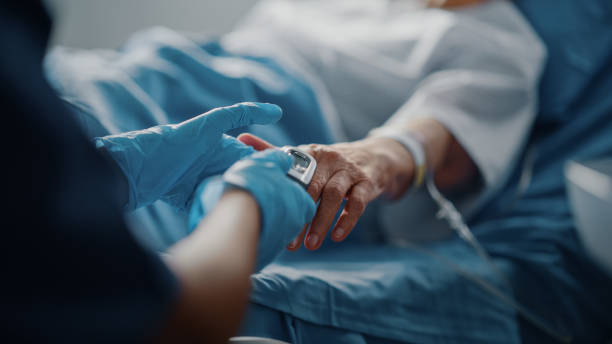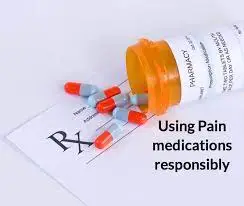
Table of Contents
ToggleUnderstanding how to properly care for yourself following termination of a pregnancy is incredibly important, as it plays a vital role in minimizing the risk of infections and expediting your recovery process. Self-care during this sensitive time involves several key practices that can help ensure both physical and emotional well-being.
What to expect days following the procedure
Terminating a pregnancy is a very emotionally and challenging experience. Reason being, that after the abortion procedure change in hormonal imbalance, decrease in progesterone and estrogen levels may lead to a range of emotional responses and physical side effects.
Emotional Effects

1. **Guilt** Societal norms, personal beliefs and expectations around motherhood can contribute to feelings of shame and judgment, leading to internalized guilt post-abortion.
2. **Sadness ** This feeling can manifest as sadness or grief similar to that experienced after losing a loved one. The process requires them to confront not only their immediate emotions but also any long-term implications related to fertility and parenthood.
3. **Confusion** This arises from mixed emotions regarding the choice itself and its consequences. Women may oscillate between relief at having made what they believe is the best decision for themselves at that time and sorrow over what might have been had circumstances been different.
Physically Side-effects

1. **Breast tenderness** The hormonal fluctuations associated with pregnancy and its termination can stimulate breast tissue, leading to the secretion of colostrum, a thick, nutrient-rich fluid that typically precedes breast milk production during lactation.
2. **Light spotting ** This spotting may vary in color and intensity, often ranging from light pink to brownish hues. This and other common symptoms typically indicates that the body is undergoing natural healing processes following the termination.
3. **Cramping** Cramping is also a common occurrence that many individuals experience as part of the post-procedural recovery process. This symptom can arise due to the uterus contracting as it returns to its pre-pregnancy size and position.
Tips on caring for yourself after abortion
Prioritizing self-care after an abortion is crucial for physical and emotional healing. The experience can be overwhelming, so taking time to recover after ending a pregnancy is essential for your well-being. Here are 8 tips to facilitate a smoother recovery, allowing you to navigate this significant life event with care and compassion. These suggestions cover emotional support, physical health, and mental wellness, all vital for your recovery journey.
1. **Resting ** It is crucial to prioritize rest and allow your body the necessary time to heal and recover
2. **Dehydration & Diet ** Consume plenty of fluids especially water and juices. Incorporate a wide variety of nutritious foods into your daily diet in order to maintain your overall health and well-being.
3. **Hygiene ** Avoid using bath tubs or swimming for at least a week, use pads for the bleeding and avoid tampons
4. **Sexual intercourse ** It is highly advisable to refrain from douching or engaging in vaginal intercourse for a period of 2 to 3 weeks. This precaution is essential in minimizing the risk of introducing harmful bacteria into the vaginal area.
1. **Acknowledge your feelings ** Allow yourself to feel the emotions that arise after ending a pregnancy or experiencing loss. This process can evoke grief, sadness, anger, confusion, and even relief. These responses are valid and part of the human experience during such profound changes.
2. **Allow yourself to grieve ** Grieving is essential for healing after a significant loss or trauma. It allows individuals to process emotions and reflect on their experiences. However, many struggle to express their grief, especially regarding sensitive topics like abortion, due to societal controversy and polarization.
3. **Seek Counseling ** Should you find yourself failing to cope, you can consider talking to a trusted friend or family member, alternatively you may seek professional counseling by locating your nearest abortion center to confidentially seek abortion counselling.
Follow-up Appointment
Regardless of the abortion procedure, whether a medical abortion involves taking medication to induce the pregnancy, or a surgical termination of pregnancy which requires specialized medical equipment to remove the contents of the womb, a follow-up exam is generally not required after care unless specific concerns arise.
However, we encourage you to schedule a return visit with your abortion provider for the following reasons.
- 1. ** During this follow-up appointment, your abortion provider will assess how well you are healing from the procedure and ensure that there are no complications like incomplete abortions or adverse effects that need addressing.
- 2. ** In addition to monitoring your physical recovery, this visit provides an excellent opportunity for discussing contraceptive / family planning options in order for you to make informed choices about your reproductive health moving forward.
- 3. ** Lastly, discussions around PrEP (pre-exposure prophylaxis) can also take place during this follow-up visit if applicable; PrEP is an effective medication taken by individuals at high risk for HIV to prevent infection.
When to seek medical attention
Many women’s abortion clinics offer a 24-hour advice line designed to assist individuals in assessing whether their symptoms require medical attention. Here are some signs that may indicate the necessity to consult a healthcare provider
- **Fever ** If its continuous with a temperature exceeding of 100.4°F (38°C)
- 2. **Vomiting **:- This might indicate a possibility of an ongoing pregnancy.
- 3. **Severe Pains **:- Prolonged and intense abdominal pain could signify underlying complications.
- 4.** Prolonged Bleeding **:- If bleeding persists for more than a week and requires frequent pad changes.
- 5. **Smelly Vaginal Discharge **:- Changes in the color or odor of vaginal discharge post-abortion may indicate a potential infection.
- 6. **Allergic Reaction to Medication **:- like rash, itchiness, difficulty breathing, or swelling.
Learn More
Explore additional strategies, tips and advice on how to expedite and enhance your post-abortion recovery phase

What to eat
Post-abortion diet and anti-inflammatory foods to promote quicker healing and recovery.

Managing pain
Recommended pain medication and home remedies that can assist relive painful abdominal cramps

Abortion do's & don'ts
Helpful list of do’s and don’ts that you should follow in order to heal and recovery quickly!
